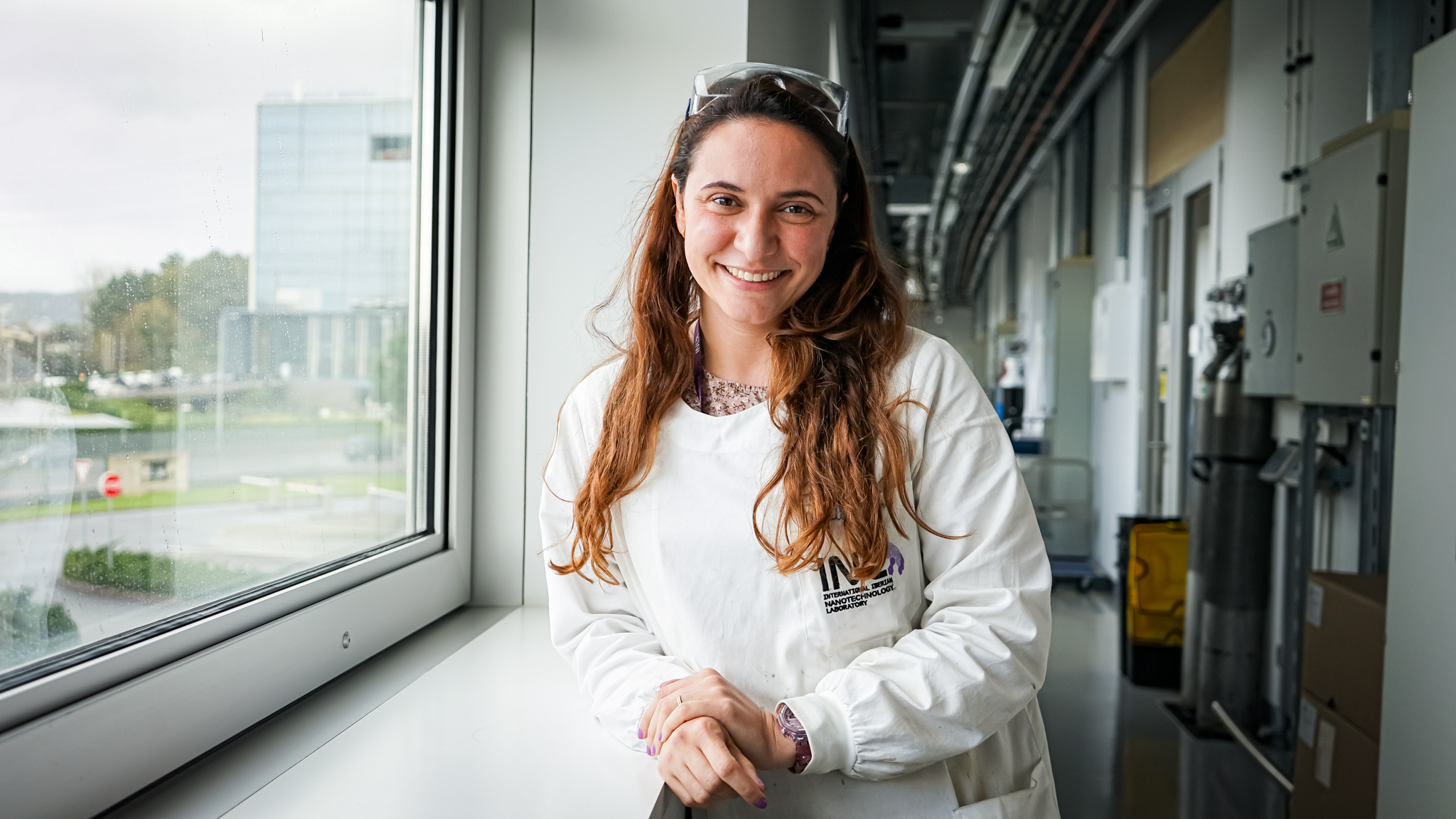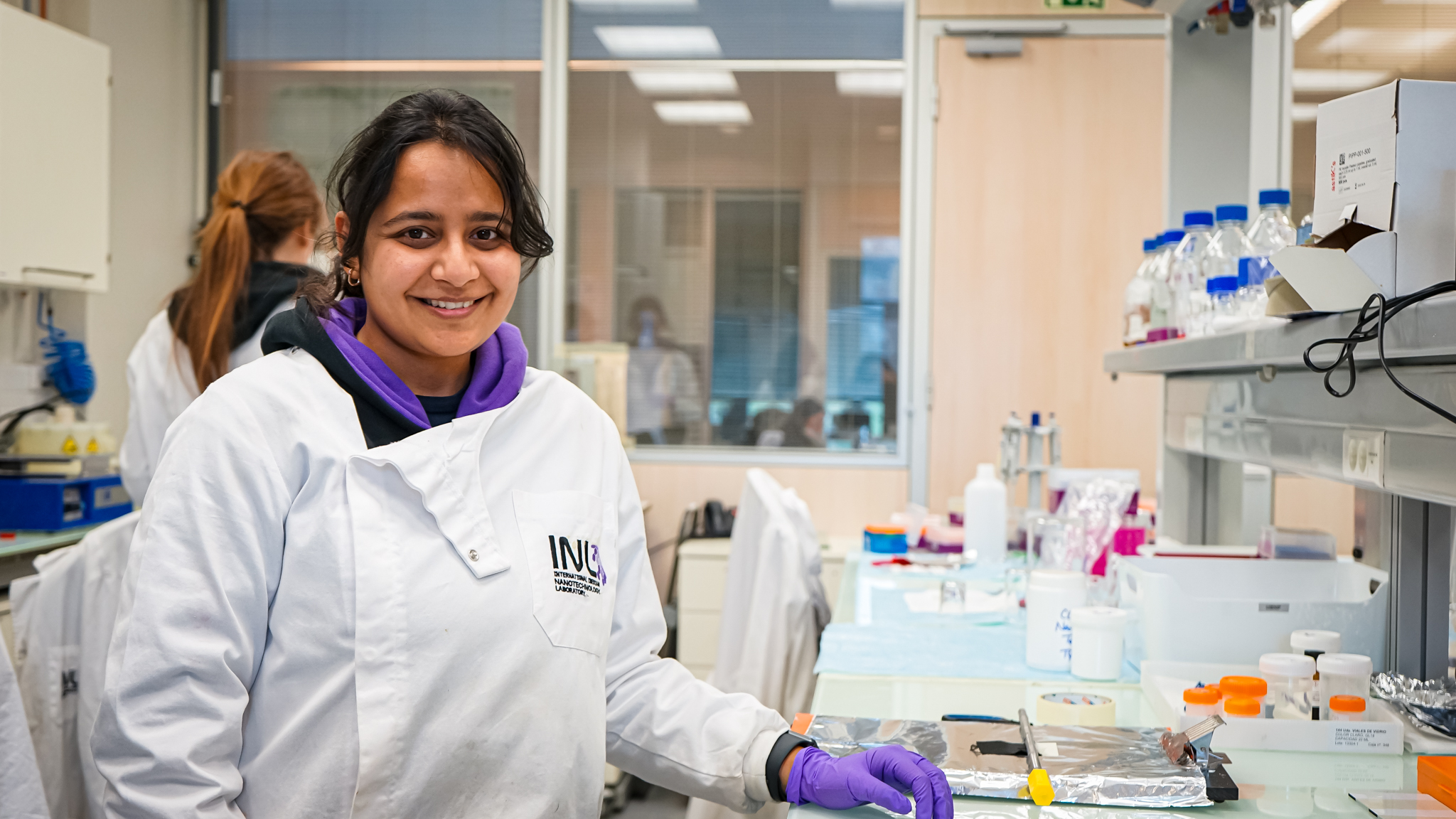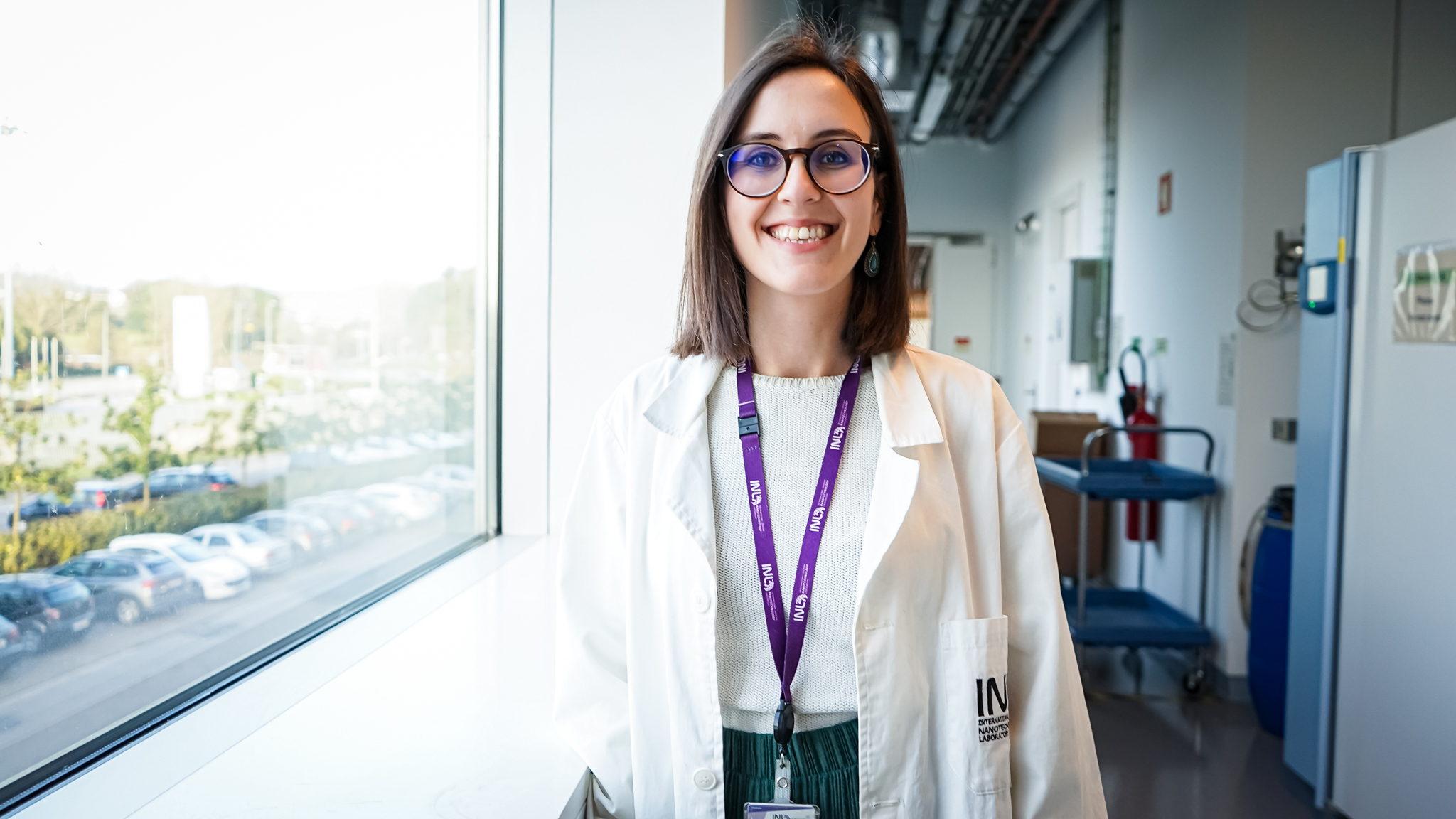
Helena Macedo, a woman with a love for science and a scientist with a love for life
February 17, 2023
We will shine a spotlight on women in STEM with this new interview series with Women working in/with Science at INL – International Iberian Nanotechnology Laboratory. It is important to celebrate the amazing contributions women make to science.
Today you can meet Helena Macedo, Research Fellow in the Food Processing and Nutrition research group. She works in the field of in vitro intestinal models, and she focused her research on the development of in vitro models that simulate the gastrointestinal tract to evaluate the safety and efficiency of nanostructures for food applications.
Who is Helena Macedo?
I’m a woman with a love for science and a scientist with a love for life, be it as a cook, a reader, a traveller, a sportswoman or even a videographer. I have a lot of interests and a thirst to explore further; science is what I chose to create the path of my life. Since a young age, I’ve always been passionate about it, understanding the reasons behind it all and helping people, being hopeful in fighting for the dream of making the world a better place.
What is the importance of your research?
My research is mainly focused on the development of in vitro models. During my PhD, I developed an intestinal model to predict intestinal absorption and now I’m developing a new model of intestinal inflammation. These models decrease the need for animal usage and that is my primary motivation. I want to help reduce or, if possible, eliminate the use of animals in scientific research. I’m an animal lover and an advocate of animal welfare and I believe that science can advance without animal suffering. That’s why I’m helping bridge the gap between in vitro and in vivo testing by developing advanced, innovative, and reliable models.
What advice would you give to young girls who are considering a career in science?
I would tell them to never give up on their dreams because they can be anything they want. If science is their dream, then run for it.
In more practical terms, I would tell them to study as much as they can in school, to keep up to date with scientific advances, to try to understand what field interests them the most, and go deeper in it, always hungry for more. To enrol in as many activities as possible, to look out for opportunities and take advantage of them, to gain knowledge and experience. To talk to people they admire, ask questions, and be curious. Above all, to never be afraid of trying. I’d tell them that is normal to err and fail, and the most important is to learn from those mistakes and failures because that’s how you grow and become stronger.
Briefly, what makes you happy about your next projects?
I’m very excited about the new model that we are now developing because I believe it will be important to help assess anti-inflammatory compounds that can speed up the treatment of Inflammatory Bowel Disease – a disease that affects around 7 million people worldwide. In my research group, we have many cutting-edge technologies like the gut-on-chip and organoids, and, by combining those, we can develop truly innovative models.
But I also try to be active beside the bench! I think outreach is a very important part of a scientist’s job and I try to do my part. At INL, I’m part of Mission NERD and its creative team, where we aim to design experiments where we combine science and social values to stress the importance of both in our society. Last year I also took part in a Woman in Science project where we organized workshops for scientists on undervalued topics with valuable career and life tips. Currently, I am taking part in a new project that will be launched soon and that I am very excited about – a platform designed, on one hand, to help scientists advance their careers by providing useful tools/knowledge and, on the other hand, to increase scientific literacy.






